
|
|
 |
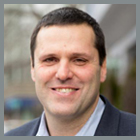
|
Alvaro Amorrortu view abstract | back to agenda
Chief Operating Officer, Solid Biosciences
Alvaro Amorrortu is the Chief Operating Officer of Solid Biosciences, responsible for building and supporting the infrastructure to enable execution of Solid’s programs. Prior to joining Solid Biosciences, he spent more than a decade as a management consultant advising biopharmaceutical companies on a variety of strategic challenges, including overseeing large scale organizational transformations as well as designing strategies for assets and portfolios moving from early stages of development to commercial launch. Amorrortu’s career as a strategist started at the Monitor Group, and then after a few years working for Inventiv Health (Campbell Alliance), moved to IMS Health. In addition, he brings hands-on experience in managing operations to Solid Biosciences. He held leadership positions in Bunge Group and Cargill subsidiaries where he was responsible for running manufacturing facilities as well as complex engineering projects. Amorrortu received his MBA with a major in Finance from The Wharton School and graduated from the Instituto Tecnológico de Buenos Aires, Argentina with an MS in Industrial Engineering. An avid traveler, he has lived and worked in Argentina, Paraguay, Spain, Switzerland and the United States. |
 |
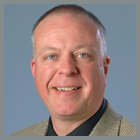
|
Chris Ballas view abstract | back to agenda
Senior Director, Process Development and Commercialization, WuXi AppTec
Chris Ballas, PhD has 20 years of experience working on cell and gene therapies in academia and industry. He has managed viral vector production and testing core cGMP and cGLP facilities serving academic and corporate clients for research and clinical material needs. As faculty, Dr. Ballas was an NIH-funded investigator at Indiana University School of Medicine, Division of Hematology/Oncology, while conducting research on stem cell biology and gene therapy. Dr. Ballas consulted for companies involved in stem cell and gene therapy programs and has managed cell therapy clinical trials (feasibility through phase III pivotal studies). Dr. Ballas wrote CMC sections and supported various regulatory filings, including FDA, Recombinant DNA Advisory Committee, and EMEA submissions. He also developed patent pending ultrahigh throughput microinjection technology. Currently, asSenior Director of Process Development and Commercialization, Dr. Ballas is responsible for managing the Process Development group supporting development, technology transfer, and commercialization of all incoming manufacturing projects/programs. He has a PhD in Cellular and Molecular Pathology. |
 |

|
Jon Chen view abstract | back to agenda
Single-cell Evangelist, Solid IsoPlexis
Jon Chen, PhD is the Single-cell Evangelist at IsoPlexis and co-inventor of the IsoPlexis technology. IsoPlexis is developing novel technologies at the forefront of the revolution in immunity-based treatments of cancer. Their predictive single-cell platform helps identify the patients most likely to respond to a variety of novel immunotherapies. Dr. Chen’s work at Yale explores the tumor microenvironment and the immune function of single cells. He received his BS in Physiology and Neuroscience with a minor in visual arts at UC San Diego. Dr. Chen has published multiple peer reviewed articles at the interface of oncology and immune mediated diseases. IsoPlexis works to elevate data to advance precision medicine in breakthrough immunotherapies and is dedicated to accelerating the fight against cancer using the predictive single-cell platform. |
 |
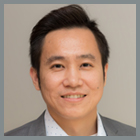
|
Chia Chu view abstract | back to agenda
Principal Scientist, Bioprocessing Research and Development, Pfizer Inc.
Dr. Chia Chu is an upstream process development scientist in the Bioprocessing Research and Development organization at Pfizer working in cross-functional teams to help progress biotherapeutic programs to the clinic and toward commercialization. He is a chemical engineer by training and received his PhD from the Johns Hopkins University. After joining Pfizer, Dr. Chu worked on several monoclonal antibody programs at both early and late stages, from developing drug substance processes for first-in-human trials to process validation and contributing to regulatory submissions. He is interested in protein expression and viral production in cell culture and enjoys collaborations to solve challenging problems with existing and new modalities. Dr. Chu is based in Chesterfield, MO and is currently leading upstream development efforts in gene therapy at Pfizer. |
 |
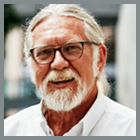
|
Robert Deans view abstract | back to Panel | back to agenda Day 2
Chief Technology Officer, BlueRock Therapeutics
Robert J. Deans, PhD has more than 25 years of experience in stem cell therapeutics, and brings strong experience in cell therapy and translational science and a global regulatory perspective to his role of Chief Technology Officer at BlueRock Therapeutics.
Dr. Deans was previously Chief Scientific Officer and responsible for development of a gene-engineered red cell therapeutic platform at Rubius Therapeutics. He previously served as Executive Vice President at Athersys, developing an adult adherent stem cell therapeutics platform (MultiStem™) with programs currently in late-phase clinical development. Dr. Deans was also Vice President of Research at Osiris Therapeutics, where he developed the approved Prochymal™ (MSC-based) product. Dr. Deans was previously Director of Research and Development at Baxter Healthcare and developed biologics used in a CD34+ cell selection platform.
Dr. Deans holds degrees from MIT and the University of Michigan, and postdoctoral training in molecular immunology at UCLA. Dr. Deans has been very active in Regulatory and commercialization workshops in the regenerative medicine space. |
 |
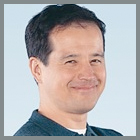
|
John Frenz back to agenda
President, CASSS
John Frenz is the President of CASSS, a global non-profit that brings together industry, government and academic professionals to advance biopharmaceutical development. Currently he teaches at Northeastern University in the biotechnology program. Over the past thirty years, John has been the Vice President of Manufacturing at Alnylam Pharmaceuticals in Cambridge, MA, the Vice President of Technical Operations at GlobeImmune, Inc, in Louisville, CO, and the South San Francisco Plant Manager for Genentech, Inc. In the latter position, he was responsible for launch of Genentech's biologics products, and for the manufacture of all the company's clinical products and about half the value of its commercial products. Prior to his position as Plant Manager, John worked in Process Development and Analytical Chemistry at Genentech. John obtained his BS and PhD degrees at Yale University, and a MS degree at MIT. |
 |

|
Jennifer Griffin back to agenda
Vice President, Industry Programs and Relations, Massachusetts Life Sciences Center
Jennifer Griffin, PhD is the Vice President, Industry Programs & Relations at the Massachusetts Life Sciences Center. In her role, she develops and manages the investment strategy for initiatives and partnerships with the life sciences industry, including private, public, and nonprofit stakeholders, in order to support the needs of the Commonwealth’s life sciences ecosystem. Prior to joining the MLSC, Dr. Griffin spent time in both the academic and private sectors of the industry. She began her career in technology licensing as an Associate Licensing Officer at MIT’s Technology Licensing Office where she worked alongside faculty, researchers, investors, and entrepreneurs to evaluate and protect early-stage life science technologies, and develop and execute viable commercialization and out-licensing strategies. Most recently, as a Senior Consultant with Back Bay Life Science Advisors, Dr. Griffin provided a variety of advisory services to private and publicly-traded biotechnology, pharmaceutical, and medical device clients including developing strategies for long-term growth, asset and indication prioritization, life-cycle management, due diligence, and liquidity planning spanning various therapeutic areas and product development stages. Dr. Griffin is a proud Massachusetts native having received degrees from both UMass Amherst (BS, Microbiology) and UMass Medical School (PhD, Biomedical Sciences). |
 |
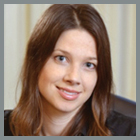
|
Veronika Jekerle view abstract | back to agenda
Quality Specialist and ATMP Topic Lead for Quality, Specialised Scientific Disciplines Department, European Medicines Agency
Veronika Jekerle obtained a pharmacy degree from University of Marburg, Germany and a PhD in Molecular pharmacology, drug discovery from the University of Bonn, Germany and University of Toronto, Canada.
In March 2006 she joined the European Medicines Agency in London. She has worked in the post-authorisation Pharmacovigilance sector, Regulatory Affairs Sector, Pre-authorisation evaluation unit and she is currently a Quality Specialist within the Specialised Scientific Disciplines Department.
She has been involved in the implementation of the Advanced Therapy Regulation including the technical Annexes on dossier requirements for ATMPs (Annex I, part IV of Dir 2001/83/EC), the ATMP classification and certification procedure. She has also been a Product Team Leader and EMA Coordinator for numerous Biological medicinal product marketing authorisations and scientific advice applications for Recombinant Proteins, Vaccines, Advanced Therapies and Biosimilar applications.
Veronika has also coordinated the development and revision of a number of important guidelines in the area of Recombinant proteins, Vaccines, Biosimilars and Advanced Therapies including the Risk-based approach for ATMPs, the Reflection paper for stem cells, the Chondrocyte reflection paper and the genetically modified cells guideline. She is the topic lead for Advanced Therapies for Quality and has coordinated or contributed to a number of workshops and expert groups in the area including the EMA Workshop on stem cell based therapies, the Multi-stakeholder workshop Advanced therapy medicines: exploring solutions to foster development and expand patient access in Europe, the Expert group on cell therapies used for cardiac repair and the Expert group on risk of tumorigenicity in mesenchymal stromal cell-based therapies.
From 2009 to 2012 she has been the scientific Lead of the Cell Products Working Party (CPWP) and since 2014 she is the Scientific Secretary to the Biologics Working Party (BWP), which advises the committee for Human Medicinal Product (CHMP) and the Committee for Advanced Therapies (CAT) onall quality-related matters for Biological & Biotechnologically-derived Medicinal Products. |
 |
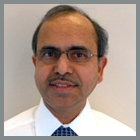
|
Bharat H. Joshi view abstract | back to agenda
Staff Scientist, Tumor Vaccines and Biotechnology Branch, Division of Cellular and Gene Therapies, Office of Tissues and Advanced Therapies, Center for Biologics Evaluation and Research, US Food and Drug Administration
Dr. Bharat H. Joshi is a Staff Scientist in the Tumor Vaccines and Biotechnology Branch, Division of Cellular and Gene Therapies, Office of Tissues and Advanced Therapies, Center for Biologics Evaluation and Research at FDA. After receiving hid PhD degree from Gujarat University, he joined CBER, FDA and then became a tenured scientist. His research focuses on identification and characterization of cancer associated antigens such as IL-13 and IL-4 receptors, their cancer biology and identification them as potential therapeutic targets in vitro and in vivo mouse model of a variety of human cancers such as prostate cancer, pancreatic cancer, malignant pheochromacytoma, medulloblastoma, glioma, and bladder cancer. Additionally, he has been involved in the development of novel cancer therapies such as fusion proteins consisting of human IL-13 and IL-4 and Pseudomonas exotoxin. He has published over 85 peer-reviewed papers, and is the recipient of several FDA CBER Scientific and Regulatory Achievement Awards (2002, 2010, 2014). |
 |

|
Geoffrey Hodge back to agenda
Chief Technical Officer, Unum Therapeutics
Geoffrey Hodge is responsible for leading the development and execution of Unum’s CMC and technical operations, including process and analytical development, manufacturing, and quality, for the company’s proprietary antibody-coupled T-cell receptor (ACTR) therapies. He has over 25 years of experience in the biotechnology industry, providing bioprocessing technical solutions for companies including Millennium Pharmaceuticals, Genetics Institute, and Alpha-Beta Technology. Prior to joining Unum, Hodge was a co-founder of Xcellerex, inventor on several of Xcellerex’s foundational single-use technology patents, and an operations leader at Xcellerex/GE Healthcare Lifesciences. |
 |
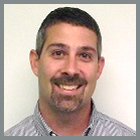
|
Jeff Kennedy view abstract | back to agenda
Process Manager, Cell and Gene Therapy Validation and Lifecycle Management, GlaxoSmithKline
Jeff Kennedy is Process Manager of Validation and Lifecycle Management in GlaxoSmithKline’s (GSK) Cell and Gene Therapy (C>) Platform Technology and Sciences department with responsibility for technology transfer to US manufacturing, control strategy development, process validation and product lifecycle management. Before joining the GSK C> team, Jeff worked for 11 years at Johnson & Johnson where he worked in process development and technology transfer for an allogeneic cell therapy product. Jeff holds a BA in biology from Widener University. |
 |
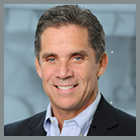
|
Stephen Kennedy view abstract | back to agenda
Executive Vice President and Chief Operating Officer, Histogenics
Stephen Kennedy and his technical operations, quality and Research and Development teams at Histogenics have successfully supported completion of the Phase 3 trial of NeoCart, an autologous tissue-engineered cartilage construct. His team is preparing to commercialize NeoCart for knee cartilage repair in the US, Japan and other territories and develop additional products for international expansion. Mr. Kennedy leads collaborations with several leading research universities including Cornell, University of Michigan and Harvard MedicalSchool, focused on developing next-generation regenerative medicine therapies.
Prior to joining Histogenics in 2013, Mr. Kennedy served as the Executive Vice President, Research and Development, at Mascoma Corporation, a biofuel company from 2011 to 2013. Prior to that, Mr. Kennedy spent 18 years at Genzyme Corporation, where he held several senior leadership roles in Technical Operations, as the company developed from small start-up to a major player in the biopharmaceutical industry. He has also served as Executive Director of the Novartis/MIT Center for Continuous Manufacturing at the Massachusetts Institute of Technology. Mr. Kennedy has a BS from the University of Michigan, an MS from the University of Rochester and an MBA from Boston University. |
 |
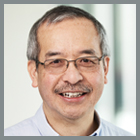
|
James Leung view abstract | back to agenda
Senior Research Fellow, Center for Biomedical Innovation, Massachusetts Institute of Technology
James Leung, PhD is a Senior Research Fellow at the MIT Center for Biomedical Innovation (CBI). He serves as the lead investigator for the Consortium on Adventitious Agent Contamination in Biomanufacturing (CAACB) and the Biomanufacturing (BioMAN) program. He contributes to the design and implementation of biotechnology-related courses and serves as a lecturer in some of these courses at MIT. He maintains a strong connection to industrial practices by serving as a consultant/advisor to pharmaceutical and biotechnology companies and other research organizations. Before his current roles, Jim held full time positions at Genentech, Repligen and Ipsen in the areas of process development, manufacturing and product development of recombinant biotherapeutics. Jim received a BSc degree from the Chemical Engineering Department at MIT. For graduate studies, he completed a MSc degree and a PhD degree in Biochemical Engineering from MIT. |
 |

|
Richard McFarland view abstract | back to agenda
Secretary, Standards Coordinating Body
Richard McFarland, PhD, MD is the Secretary of Standards Coordinating Body (SCB) for Gene, Cell and Regenerative Medicines and Cell-based Drug Discovery. The SCB will help to improve product quality, enhance health and safety, strengthen market access and trade, and build consumer confidence in the field of regenerative medicine through support of the development of consensus standards and other standards-related output, as well as reference materials. Dr. McFarland is also the Chief Regulatory Officer of ARMI, the Advanced Regenerative Manufacturing Institute. Prior to ARMI, Dr. McFarland was Associate Director for Policy (ADP) of the Office of Tissues and Advanced Therapies at the Food and Drug Administration’s Center for Biologics Evaluation and Research (FDA/CBER). During his eleven years in the ADP role he was heavily involved in policy development in the areas of the human tissue rules (21 CFR 1271) including jurisdiction and donor eligibility of emerging infectious diseases, such as West Nile and Zika viruses, tissue engineering, regenerative medicine, and alternatives to animal use in regulatory decision-making. In addition to development of risk-based regulatory oversight paradigms within FDA, his interests included broader efforts to create an interlocking network of interagency efforts to foster growth of basic and translational science to support maturation of the overlapping fields of tissue engineering and regenerative medicine from primarily discovery science toward a stage of commercial development.
Dr. McFarland received his BS, PhD, and MD from the University of North Carolina at Chapel Hill, and completed his anatomic/clinical pathology residency and immunopathology fellowship training at University of Texas Southwestern in Dallas. Immediately prior to joining the FDA, he was on the faculty of the Pathology Department of the University of Texas Southwestern in Dallas. In addition to FDA policy documents he has co-authored over 25 articles in peer-reviewed articlesin journals including Nature, the Proceedings of the National Academy of Science (PNAS), and Blood. |
 |

|
Debra Meyer view abstract | back to agenda
Associate Research Fellow, Pfizer
Debra Meyer is an Associate Research Fellow in the Analytical Research and Development department within the Biotherapeutics Pharmaceutical Sciences division at Pfizer. She is responsible for the development of analytical strategies and execution to support CAR T cell therapies and Antibody Drug Conjugates in clinical development. Meyer was previously in discovery research at Pfizer with primary focus on developing and executing in vitro and in vivo mechanistic assays to evaluate potency and specificity of protein and small molecule drug candidates. |
 |

|
Julie Murrell view abstract | back to agenda
Head of Cell Therapy Manufacturing, MilliporeSigma
Dr. Julie Murrell is the Head of Cell Therapy Manufacturing and leads a team of scientists and engineers at MilliporeSigma, the Life Science business of Merck KGaA, Darmstadt, Germany. Dr. Murrell has led multiple technology groups at the company for over 11 years. Through that time, she has driven the efforts to establish robust analytics and develop manufacturing strategies for stem cell industrialization, with a focus on hMSCs, T cells and iPSCs. The group also works with collaborators to complete process development activities. Dr. Murrell’s background is in Cell and Developmental Biology. Dr. Murrell earned her PhD at Tufts University School of Medicine in the field of Developmental Neuroscience, completed a Post-Doctoral Fellowship in Translational Medicine at Harvard Medical School and a Fellowship in Stem Cell Biology at the University of Massachusetts. Her multi-disciplinary background has led to innovative team-driven solutions in the field of stem cell production. |
 |
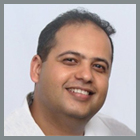
|
Someet Narang view abstract | back to agenda
Senior Scientist, MedImmune
Dr. Someet Narang leads the platform cell therapy CMC team and the upstream cell therapy process development group at MedImmune LLC, a subsidiary of AstraZeneca. In addition to his current focus on developing simple and cost-effective cell therapy processes, Someet has led the upstream process development of several early stage biomolecules produced in mammalian cell lines. Prior to joining MedImmune, Someet received his doctorate degree from the department of Chemical and Biomolecular Engineering at Johns Hopkins University, where his work focused on glycosylation and metabolic engineering of insect and mammalian cells. |
 |
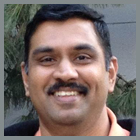
|
Arvind Natarajan view abstract | back to agenda Day 1 | back to panel
Head, Program Management Office and Strategy, Cell and Gene Technical Development and Manufacturing, Novartis
Dr. Arvind Natarajan, PhD, MBA is the Head of the Program Management Office and Strategy for Cell and Gene Technical Development and Manufacturing at Novartis. In his role, Dr. Natarajan is responsible for implementing portfolio strategy and processes for Cell and Gene programs (early / late phase development and commercial). He previously served as the Global CMC Lead for the development and commercialization of Kymriah®. Prior to joining Novartis, Dr. Natarajan worked for several years at Merck and Company on the development, commercialization, and supply of Keytruda®, Zostavax®, ProQuad®, and Varivax®. |
 |
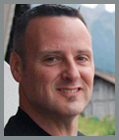
|
David O'Dowd view abstract | back to agenda
Associate Director, Draper
David O’Dowd is an Associate Director in the Biomedical Solutions group at Draper Laboratory where he has focused on the Human Organ Systems and Bioprocessing businesses. Prior to joining Draper 9 years ago, he worked in consulting, startups and a small angel fund all focused on developing early stage drug, device and diagnostic technologies toward clinically and financially attractive applications. |
 |

|
Nigel Pheasey view abstract | back to agenda
Principal Scientist, Process Development, Amgen
Nigel Pheasey has a Bachelor of Science degree in Applied Microbiology from Liverpool John Moores University (UK) and an EngD in Biochemical Engineering and Bioprocess Leadership from University College London (UK). His thesis involved investigating the effects of the bioprocessing environment on enveloped viruses. After leaving university Nigel worked at the public health laboratories, UK and also at Intervet UK developing veterinary vaccines. Nigel joined BioVex in 2002 as part of the process development team that developed and characterized both upstream and downstream technologies of the Imlygic® manufacturing process from Phase 2 clinical trials through Commercial approval. BioVex was purchased by Amgen in 2011 and Nigel is currently the Process Development functional site lead for Imlygic® at Amgen leading commercial manufacturing support and process lifecycle development projects. |
 |
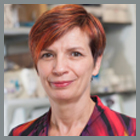
|
Isabelle Rivière view abstract | back to agenda | back to panel
Director, Michael G. Harris Cell Therapy and Cell Engineering Facility; Laboratory Member, Molecular Pharmacology Program; Attending Geneticist, Department of Medicine, Memorial Sloan Kettering Cancer Center
Isabelle Rivière, PhD focuses on developing novel strategies for cell therapies and immunotherapies. Her laboratory investigates genetic approaches to enhance various cell types including T lymphocytes and stem cells for the treatment of cancer and genetic blood disorders. Over the past 18 years, Dr. Rivière has developed cell manufacturing processes for several Phase I/II clinical trials under current Good Manufacturing Practices in the academic setting. Her lab currently supports multiple CAR-T cell based clinical trials for the treatment of hematological malignancies and solid tumors. She also investigates immunological functions of CAR T cells in clinical trials and animal models. Dr. Rivière has been involved in co-organizing the Clinical Trials training courses at the American Society of Gene and Cell Therapy (ASGCT) (2014, 2017) and at the International Society for Stem Cell Research (ISSCR) (2016) annual meetings. She actively participates in the National Cell Manufacturing Consortium Workshops that have led to the establishment of the “Technology Roadmap to 2025 for Achieving Large-Scale, Cost-Effective, Reproducible Manufacturing of High-Quality Cells”. My laboratory is part of the National Institute for Innovation in Manufacturing Biopharmaceuticals (NIIMBL) network. Dr. Rivière is a member of the Board of Directors of the American Society of Gene and Cell Therapy (ASGCT), the Alliance for Regenerative Medicine (ARM) and the Centre for Commercialization of Cancer Immunotherapy C3i (Canada). |
 |

|
Gregory Russotti view abstract | back to agenda
Vice President, Cell Therapy Development and Operations, Celgene Corp
Dr. Gregory Russotti is currently Vice President of Cell Therapy Development and Operations at Celgene Corporation, responsible for process development, analytical method development, clinical manufacturing, quality control and quality operations of cell therapy products.
Prior to joining Celgene in 2006, Greg spent 15 years at Merck Research Laboratories developing products that included live virus vaccines, monoclonal antibodies, recombinant vaccines, and microbially-produced natural products. He worked on development, scale-up, and tech transfer of cell culture, microbial fermentation, and downstream isolation processes to clinical and commercial manufacturing facilities. Greg received his BS and MS degrees in Chemical Engineering from Rensselaer Polytechnic Institute and his PhD in Chemical and Biochemical Engineering from Rutgers University. |
 |

|
Anthony J. Sinskey back to agenda
Professor of Biology; Faculty Director, Center for Biomedical Innovation, Massachusetts Institute of Technology
Anthony J. Sinskey, ScD, is a Professor of Microbiology at the Massachusetts Institute of Technology. He also holds positions as Co-Director of the Malaysia-MIT Biotechnology Partnership Program and as Faculty Director of the MIT Center for Biomedical Innovation. He conducts interdisciplinary research in metabolic engineering focusing on the fundamental physiology, biochemistry and molecular genetics of important organisms.
Professor Sinskey is well known in the biopharmaceutical industry and has been a Scientific Co-founder of several biotechnology companies, including Genzyme, Metabolix, Merrimack Pharmaceuticals, and Tepha. Dr. Sinskey has given more than 350 presentations at US and International scientific meetings and congresses. He has received 31 issued patents, has made more than 30 invention disclosures and has published more than 350 scientific papers in leading peer-reviewed journals for biology, metabolic engineering, and biopolymer engineering.
His current research focuses on the genetics and biochemistry of carbon storage in biological systems including biopolymers and triacylglycerides. Investigations include studies with a variety of feedstocks to fuels, chemicals and biopolymers.
Dr. Sinskey received his undergraduate degree from the University of Illinois at Urbana-Champaign and his ScD in Microbiology and Food Science from the Massachusetts Institute of Technology. His post-doctoral work was done at the Harvard School of Public Health. |
 |

|
Richard O. Snyder view abstract | back to agenda
Chief Scientific Officer, Brammer Bio
Dr. Richard O. Snyder was the founder of Florida Biologix, which was spun out of the University of Florida in 2015 and merged to create Brammer Bio. Dr. Snyder has been investigating virus biology, vector development, cGMP manufacturing and analytical technologies, and viral vector-mediated gene transfer for over 30 years, and was a member of teams that developed novel viral vector-based human gene therapies. Dr. Snyder was an Associate Professor of Molecular Genetics and Microbiology, and Director of Biotherapeutic Programs at the University of Florida; an Assistant Professor of Pediatrics at Harvard Medical School; and was previously employed by Cell Genesys, Somatix, Merlin, and Avigen where he was engaged in the development of gene transfer vector and vaccine technology, along with therapeutic applications. Dr. Snyder was a postdoctoral fellow at Johns Hopkins University School of Medicine, received his doctoral degree in Microbiology from The State University of New York at Stony Brook, and obtained his BA in Biology from Washington University in St. Louis. |
 |
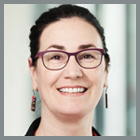
|
Stacy L. Springs back to agenda day 1 | back to agenda day 2
Executive Director, BioMAN & CAACB; Senior Director of Programs, Center for Biomedical Innovation, Massachusetts Institute of Technology; Associate Institute Director, National Institute for Innovation in Manufacturing Biopharmaceuticals (NIIMBL)
Dr. Stacy L. Springs serves as the Senior Director of Programs at MIT’s Center for Biomedical Innovation (CBI) and as the Executive Director of both MIT’s Biomanufacturing Program (BioMAN) and its Consortium on Adventitious Agent Contamination in Biomanufacturing (CAACB). The objective of the BioMANufacturing Program is to develop new knowledge, science, technologies and strategies that advance the manufacture and global delivery of high quality biopharmaceuticals. The CAACB pools biopharmaceutical manufacturing expertise in the area of adventitious agent contamination to better enable the safe and dependable delivery of life-saving biologics. In addition, Dr. Springs serves as the Associate Director of the National Institute for Innovation in Manufacturing Biopharmaceuticals (NIIMBL). She holds a PhD in Chemistry from the University of Texas at Austin and gained postdoctoral training in protein and biophysical chemistry at Princeton University. |
 |
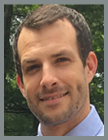
|
Austin Thiel view abstract | back to agenda
Senior Principal Scientist, Semma Therapeutics
Austin is a Senior Principal Scientist at Semma Therapeutics, where he focuses on cell-based research and development. Austin has a BS in Microbiology/Biochemistry from Penn State University and a PhD in Cell and Molecular Biology from the University of Pennsylvania. He is an expert in stem cell biology and regenerative medicine, with several years of experience developing stem cell-derived therapies. Austin previously worked at ACT/Ocata Therapeutics prior to joining Semma in early 2016. |
 |

|
Krystyn Van Vliet view abstract | back to agenda
Associate Provost; Professor, Departments of Material Science and Engineering and Biological Engineering, Massachusetts Institute of Technology
Krystyn Van Vliet, PhD serves currently as Massachusetts Institute of Technology (MIT) Associate Provost and Director of Manufacturing Innovation for the MIT Innovation Initiative. She is the Michael and Sonja Koerner Professor of Materials Science and Engineering, and holds a dual appointment in the Department of Biological Engineering. Dr. Van Vliet earned her ScB in Materials Science and Engineering from Brown University (1998) and her PhD in Materials Science and Engineering from MIT (2002). She conducted postdoctoral research at Boston Children’s Hospital in vascular biology and mechanics related to cancer, and joined the faculty of the MIT Department of Materials Science and Engineering in 2004. Dr. Van Vliet leads the MIT Laboratory for Material Chemomechanics, and also leads the Singapore-MIT Alliance in Research and Technology (SMART) BioSystems and Micromechanics team, which includes approximately 175 researchers in Singapore and MIT, including 8 other MIT faculty from several engineering departments and 25 Singapore-based faculty collaborators. This team invents and develops new technology platforms for diagnostics and treatment of cell and tissue disease. Within five years, this team of engineers, biologists, and clinicians has contributed several key breakthroughs and inventions to cell imaging, drug screening, and optical imaging; this includes one start-up company and several devices now involved in international clinical trials including stem cell-based therapies. |
 |

|
Lance Weed view abstract | back to agenda
Vice President Operations, uniQure
Lance Weed is a senior operations executive with nearly 30 years of operations experience manufacturing products in a cGMP environment over a broad range of disciplines—through company growth from preclinical Research and Development phase through product approval. Lance has designed multiple manufacturing facilities at which he oversaw the construction and led the establishment of operations. |
 |
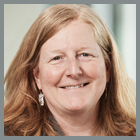
|
Jacqueline Wolfrum back to agenda
Associate Director, Biomanufacturing Program (BioMAN), Center for Biomedical Innovation, Massachusetts Institute of Technology; Strategic Programs and Partnerships Advisor, National Institute for Innovation in Manufacturing Biopharmaceuticals (NIIMBL)
Dr. Jacqueline Wolfrum is an Associate Director at MIT’s Center for Biomedical Innovation (CBI), where her work includes advancing BioMAN’s initiatives in the area of cell and gene therapy manufacturing. She also serves as the Strategic Programs and Partnerships Advisor for the National Institute for Innovation in Manufacturing Biopharmaceuticals (NIIMBL). She previously worked on development of microbioreactors for the culture of mammalian cells in the laboratory of Professor Rajeev ram in the Physical Optics and Electronics Group at MIT’s Research Laboratory of Electronics (RLE). She has more than 15 years of experience in research, development, and manufacturing support for the cGMP cell therapy products and cell-based medical devices in previous positions at W.R. Grace and Genzyme Biosurgery. Dr. Wolfrum received an SB in Chemical Engineering from MIT and a PhD in Biomedical Engineering from RPI. |
 |

|
J. Fraser Wright back to agenda
Principal, Wright Biologics Consulting
Dr. Fraser Wright has been engaged for more than 20 years in the development of viral vector-based new biologic products in both industry and academic settings, and is currently Principal at Wright Biologics Consulting. Fraser is a co-founder of Spark Therapeutics, and from 2013-2017 served as their Chief Technology Advisor / Officer, responsible for technology development, and providing his expertise as CMC SME in support of Spark's clinical development programs. Prior (2004-2015), he founded and directed the Clinical Vector Core Laboratory at The Children's Hospital of Philadelphia, a world-class manufacturing facility that has designed, manufactured, characterized and certified recombinant adeno-associated viruses (AAV) and lentiviruses (rLenti) for human gene therapy trials. He also was a professor of pathology and laboratory medicine at the University of Pennsylvania. Fraser has led efforts in basic research, process and analytical methods development and GMP manufacturing and quality systems supporting translational research. He has overseen investigational product chemistry, manufacturing and controls for gene therapy vectors used for more than 200 human subjects in 12 clinical studies, including GMP manufacture of rLenti vectors for early phase clinical trials ultimately supporting licensure of Kymriah®, and Pre-clinical through Phase 3 clinical trials supporting the BLA submission of LuxturnaTM. With basic training in biochemistry, immunology and virology, his primary research interests focus on the development and clinical translation of gene therapy vectors with the goal of achieving effective new treatments for serious human diseases. He previously also served as director of development and clinical manufacturing at Avigen, and scientist at Sanofi Pasteur. He received his BSc and PhD in biochemistry from the University of Toronto. |
 |
|
|